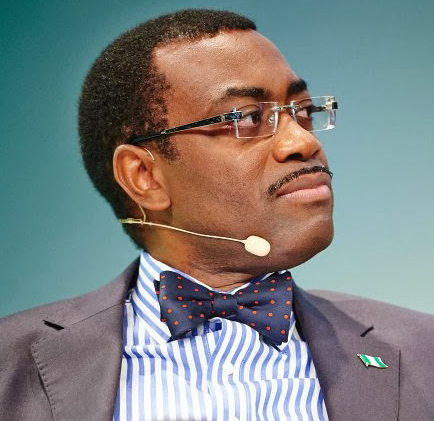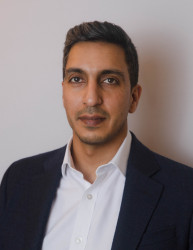
US$35 billion import bill for food hampers African economies

Washington DC – In an impassioned speech delivered at the Center for Global Development in Washington, DC, on Wednesday, 19 April 2017, African Development Bank President Akinwumi Adesina spoke about Africa’s enormous potential, and the bank’s ambitious development agenda.
“Our vision for Africa is clear,” said Adesina as he that more than 9 millions Africans now enjoy improved acces to health care, through interventions by the development bank. In addition, he said, 3.3 million people were connected to electricity grids, 3.7 million had their access to water and sanitation improved, 5.7 million are improving their agricultural output and 7 million people now have access to better transport.
Two years ago, Adesina had to defend his application for President of the African Development Bank before a panel at the Center for Global Development.
This week Adesina reminded his audience that the vision he outlined in his inaugural speech, the five development priorities known as the High 5s, are being rolled out across the continent.
“Our vision for Africa at the Bank is encapsulated in the High 5s: Light up and power Africa; Feed Africa; Industrialize Africa; Integrate Africa; and Improve the quality of life for the people of Africa,” Adesina said, enumerating an impressive list of initiatives the Bank is undertaking.
“We launched the New Deal on Energy for Africa, with a commitment of US$12 billion from the bank over the next five years, with the goal of leveraging US$45 billioni to 50 billion. Our goal is to connect 130 million people to the grid, 75 million via off-grids and provide some 150 million with clean cooking energy” he elaborated.
“We’ve set up a whole new Vice Presidency just for Power and Energy: the first and only Multilateral Development Bank to do so. Last year, we financed US$1.7 billion in the power sector across 19 countries, and will increase this to US$2 billion this year, leveraging US$5 billion to US$7 billion. We’ve launched a US$500 million Fund for Energy Inclusion with US$100 million seed capital, to provide affordable finance for companies investing in renewable energy.
“Just as electricity powers an economy, so does food provide energy for people. Africa’s annual food import bill of US$35 billion, estimated to rise to US$110 billion by 2025, weakens African economies, decimates its agriculture and exports jobs from the continent,” Adesina said, noting that US$35 billion is just about what the continent needs to close its power deficit.
“To rapidly support Africa to diversify its economies, and revive its rural areas, we have prioritized agriculture,” he continued. “The bank has committed US$24 billion to agriculture in the next 10 years, with a sharp focus on food self-sufficiency and agricultural industrialization.
“We’re taking action to level the playing field for women in Africa. That’s why we launched the Affirmative Finance Action for Women in Africa (AFAWA) with the goal of mobilizing US$3 billion for women entrepreneurs.
“We’ve taken on the biggest social issue facing Africa today: the high youth unemployment rates. Today, a third of Africa’s 230 million youths (about 20% of the global youth population) are unemployed or discouraged, another third are in vulnerable employment largely in the informal sector while only one sixth are in wage employment.”
The bank has also partnered with the European Investment Bank to launch the Boost Africa initiative for young innovative entrepreneurs, and is investing in training for young people in science, technology and mathematics to prepare them for the jobs of the future.
“The African Development Bank is delivering for Africa and it has the capacity to deliver more for Africa,” Adesina said. “It now needs substantial financing wind behind its sails. It’s time for speedy financing actions to accelerate Africa’s development” concluded Adesina.











































